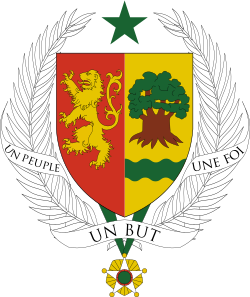This article needs additional citations for verification .(August 2025) |
 |
|---|

The Court of Cassation (French : Cour de cassation) is the highest court in Senegal. It is based on the model of the French Court of Cassation. [1] [2]
This article needs additional citations for verification .(August 2025) |
 |
|---|

The Court of Cassation (French : Cour de cassation) is the highest court in Senegal. It is based on the model of the French Court of Cassation. [1] [2]
{{cite web}}: Missing or empty |title= (help)